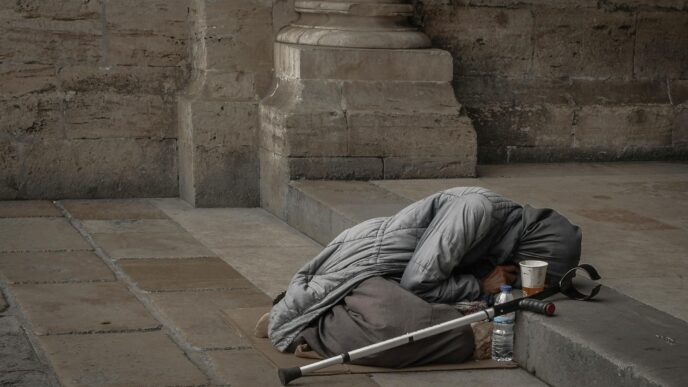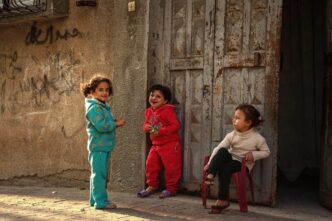The Neglected Duty of Caring for Neighbours
“The best companion to Allah is the best to his companions, and the best neighbor to Allah is the best to his neighbors.” (Tirmidhi 1944)
In a world increasingly connected by global humanitarian efforts, the simple yet powerful Sunnah of helping our neighbors is often overlooked. The Prophet Muhammad (PBUH) placed immense emphasis on neighborly kindness, yet modern Muslims frequently prioritize distant charity over local support. This article explores why reviving this fundamental Sunnah is crucial in addressing contemporary social challenges such as loneliness, poverty, and community fragmentation.
The Islamic Foundation of Helping Neighbours
Islam places great importance on supporting those closest to us. The Quran repeatedly stresses the duty of kindness toward neighbors:
“Worship Allah and associate nothing with Him, and be good to parents, relatives, orphans, the needy, the near neighbor and the distant neighbor.” (Quran 4:36)
The Prophet Muhammad (PBUH) demonstrated exceptional care for his neighbors, regardless of their faith. One of the most well-known hadiths describes how Jibreel (AS) repeatedly advised the Prophet about the rights of neighbors until he thought they might be given a share in inheritance (Bukhari 6014, Muslim 2625). This profound emphasis illustrates that helping neighbors is not merely a good deed but a religious duty with significant ethical and spiritual rewards.
The Social Impact of Neighborly Support
Helping neighbors is not just a religious act—it is a foundation for stronger, more connected communities. Neighborly kindness fosters mutual trust, reduces isolation, and enhances collective well-being.
Historical Perspective:
- Classical Islamic societies thrived through mutual aid networks, where communities took care of one another, ensuring that no one was left behind.
- The waqf (Islamic endowment) system was instrumental in supporting local welfare, funding public kitchens, hospitals, and educational institutions.
Modern-Day Relevance:
- Global crises, such as economic instability and pandemics, have underscored the necessity of local resilience and support networks.
- In the wake of rising loneliness and mental health struggles, even small acts of neighborly kindness can significantly impact individuals’ well-being.
Reviving the Forgotten Sunnah in Modern Society
How can Muslims reintegrate the Sunnah of helping neighbors into daily life? Here are practical ways to cultivate stronger community ties:
1. Checking in on Elderly and Vulnerable Neighbors
- A simple phone call or visit can provide comfort to those who may feel isolated.
- Offer assistance with household tasks or medical appointments.
2. Sharing Meals and Hospitality
- The Prophet (PBUH) encouraged sharing food with neighbors, a tradition that strengthens bonds and fosters unity.
- Cook an extra portion and share it with a struggling family next door.
3. Offering Practical Help
- Assist with errands, childcare, or transportation.
- Support those facing financial hardships through discreet financial aid or employment opportunities.
4. Organizing Community-Based Initiatives
- Encourage masjids and Muslim organizations to establish programs that facilitate neighborly support, such as food drives, home visits, and local networking events.
- Promote neighborhood gatherings that bring people together and foster deeper connections.
Overcoming Barriers to Local Giving
Despite the clear importance of helping neighbors, several obstacles often hinder local giving:
1. The Individualism Mindset
- Modern societies often prioritize self-sufficiency over communal responsibility.
- Solution: Shift the mindset—understand that Islam promotes collective well-being over hyper-individualism.
2. Lack of Time or Awareness
- Many people struggle with busy schedules and overlook opportunities for local giving.
- Solution: Incorporate small but consistent acts of kindness into daily routines.
3. Cultural Barriers
- In diverse societies, language or cultural differences may deter neighborly interactions.
- Solution: Embrace inclusivity—Islamic teachings emphasize helping all neighbors, regardless of faith or background.
By addressing these challenges, Muslims can revive the spirit of neighborly giving and create stronger, more connected communities.
Call to Action: Becoming an Ambassador of the Sunnah
The revival of this Sunnah starts with individual action. Here’s how you can begin today:
- Make an intention to actively engage in local giving as an act of worship.
- Reach out to at least one neighbor this week—offer help, a kind word, or a shared meal.
- Encourage your masjid or community center to implement neighborhood support programs.
- Share this knowledge—educate others about the importance of neighborly kindness in Islam.
Dua: O Allah, grant us the ability to embody the Sunnah of kindness to our neighbors. Make us sources of comfort, generosity, and unity in our communities. Ameen.
Conclusion: The Ripple Effect of Neighborly Kindness
The Sunnah of helping neighbors is not just an individual duty but a blueprint for societal harmony. When communities embrace compassion and solidarity, they become stronger, more resilient, and more reflective of Islamic values.
Charity begins at home, and as Islam teaches a balanced approach to giving, ensuring both local and global needs are met is essential. No act of kindness—no matter how small—is ever wasted in the sight of Allah.











